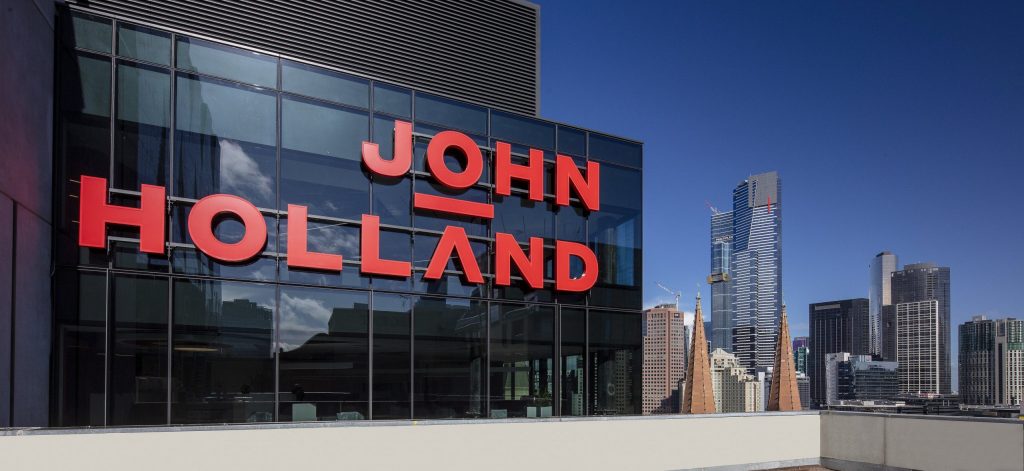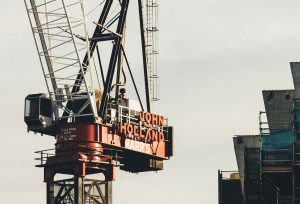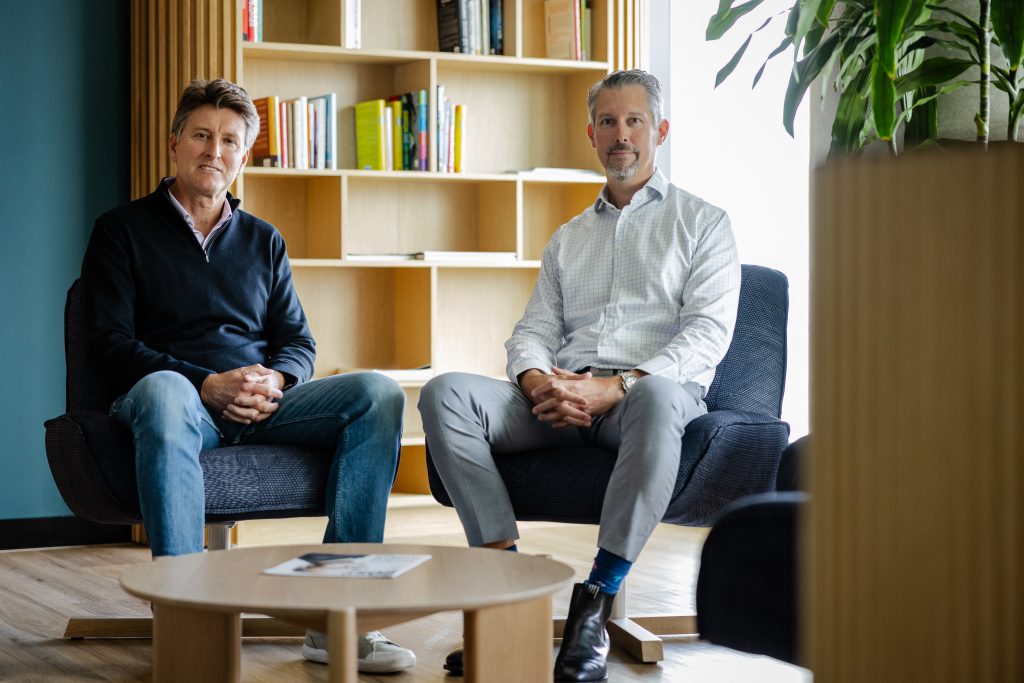
John Holland's iconic redevelopment of Sydney Football Stadium
Copiloting construction: John Holland embraces generative AI to enhance the productivity of its workforce
The construction industry has traditionally lagged in digital transformation and adoption of emerging technologies. According to a 2016 report by McKinsey, construction was the second-least digitised industry, above agriculture and hunting. More recently, a 2023 report by Deloitte highlighted the slow adoption of AI and machine learning by construction and engineering businesses in Australia, Japan and Singapore. Only 26 per cent use these technologies, and just 35 per cent plan to use them in the future.
 John Holland, a leader in Australia and New Zealand’s construction industry, is challenging these norms. Over the past six years, the company has increased its focus on technology and digital transformation. A key pillar of its digital transformation strategy, launched in 2021, is rapidly emerging capabilities such as AI, digital twins and the Internet of Things.
John Holland, a leader in Australia and New Zealand’s construction industry, is challenging these norms. Over the past six years, the company has increased its focus on technology and digital transformation. A key pillar of its digital transformation strategy, launched in 2021, is rapidly emerging capabilities such as AI, digital twins and the Internet of Things.
“Exploring these technologies is crucial for our growth and to stay ahead in a competitive market,” says Bastian Uber, Chief Digital and Information Officer at John Holland. “We’re always looking at new technologies to see if we can gain value from them.”
From machine learning to advanced AI assistants
John Holland’s AI journey began in 2021 using machine learning and optical character recognition to process invoices. This early adoption yielded significant productivity benefits, spurring further exploration of AI’s potential.
In 2023, the company collaborated with Microsoft to build a private version of OpenAI’s chatbot, ChatGPT. This enabled employees to harness generative AI’s potential while preserving data security.
“The generative AI genie was out of the bottle and we could see the benefits for John Holland,” says Uber. “We quickly realised that if we didn’t provide a safe and secure solution for our organisation, we’d risk having our data shared in public-facing generative AI applications.”
The company’s private ChatGPT solution is open for all employees and has more than 200 unique daily users who transact over 1,000 queries every day – a clear testament to the workforce’s eagerness to embrace generative AI. Having assistance to write and summarise content faster boosts employee productivity. It also enables those working on joint venture projects with other companies to use generative AI capabilities safely and securely.
The technology’s potential culminated in John Holland joining the Copilot for Microsoft 365 Early Access Program (EAP) in September 2023.
It’s obvious what this technology can enable within an organisation, particularly around productivity at an individual level. I wanted to lean into Copilot early so our people could feel comfortable with this technology and explore use cases in their day-to-day work. – Bastian Uber, Chief Digital and Information Officer
Unearthing real productivity benefits
John Holland introduced Copilot to its IT team in October 2023 before expanding the trial to operational business units. These included its building, infrastructure, rail and transport, and major projects teams. The company has issued 260 of its 300 Copilot licences and expects to deploy the remainder to executives and senior leaders by the end of February 2024.
Gregory Koteras, General Manager of Applications and Emerging Technologies at John Holland, says the company facilitated adoption by conducting introductory Copilot training sessions without being overly prescriptive.
“The aim was to gauge the adoption and training needs of our workforce,” he explains. “The main challenge is overcoming the inertia of traditional work methods, so we’ve been conducting scenario discovery sessions with employees to encourage experimentation with Copilot and share their experiences.”
These sessions have helped uncover several valuable use cases for Copilot, including searching internal information, summarising and writing emails, and drafting position descriptions and executive summaries for reports.
“I find it really useful for removing writer’s block by giving me 60 per cent of the content, and then I can take it the last mile to refine and apply human judgement,” says Uber.

Copilot is proving particularly valuable within Microsoft Teams for John Holland’s early users. Project managers use it in client meetings and tender planning discussions to quickly generate meeting recaps, compile unanswered questions and recommend key actions or issues raised. In addition, a graduate employee in John Holland’s rail and transport team uses Copilot in Teams to help them better understand complex meeting content and surface granular details.
Copilot is also helping employees who are not native English speakers or lack English proficiency to draft high-quality, professional emails and improve their communications.
A recent survey showed that John Holland’s Copilot users believe they save between 30 and 60 minutes per day. The accumulative effect of this means people could be saving around 10 hours per month, which can significantly change what individuals spend their time doing. Koteras says these significant time savings enable frontline staff to be more focused on critical project activities and also more attentive in meetings.
For our corporate workforce, it allows them to spend less time doing admin and more time working on our strategy and with different teams. And we’ve heard anecdotal examples that it’s giving some people more time to spend with their families, which is a profound example of the impact AI can have on work life balance. – Gregory Koteras, General Manager of Applications and Emerging Technologies
“We see AI as a differentiator for our business and as something that can take hard work out of the business. There are a lot of manual processes we can automate to improve workforce productivity. Given there is a labour shortage in the construction sector, anything we can do to be more efficient will really help guide our business forward.”
Exploring industry-specific use cases
While John Holland is already realising the benefits of Copilot, the construction company is keen to explore industry-specific use cases of the generative AI technology.
“I’m excited to see how it can have a more material impact on our core business,” says Uber. “One example we are working towards once Microsoft Excel capabilities advance, is to allow our tender planning team to extract historical information more easily from spreadsheets and respond to tenders more efficiently. If we can take time and cost out of that process, that will be a real game changer.”
The company also hopes to collaborate with its engineering and design partners, including GHD to explore how Copilot can aid in redesigning assets to be more environmentally friendly. For instance, using less material, such as concrete or steel, without compromising structural integrity.
“Even a three per cent reduction across multiple assets could significantly lower their carbon footprint,” says Uber.
Using AI with integrity
John Holland places great importance on the responsible and ethical use of AI, having developed its own robust standards and policies. These include strict data handling guidelines and quality assurance processes for AI outputs.
First and foremost, employees cannot put data from John Holland or our clients into public instances of generative AI. The protection of data is critical to us. – Bastian Uber
“Secondly, any outputs from this technology must undergo a quality assurance test by a human. You can’t just take whatever it spits as the answer as fact.”
This responsible stance reflects John Holland’s commitment to complementing human skills with technology, ensuring a harmonious integration of AI into its workforce.
“People are still our biggest asset,” says Uber. “Generative AI is just another way of making them more informed through data, efficient and safer.”















